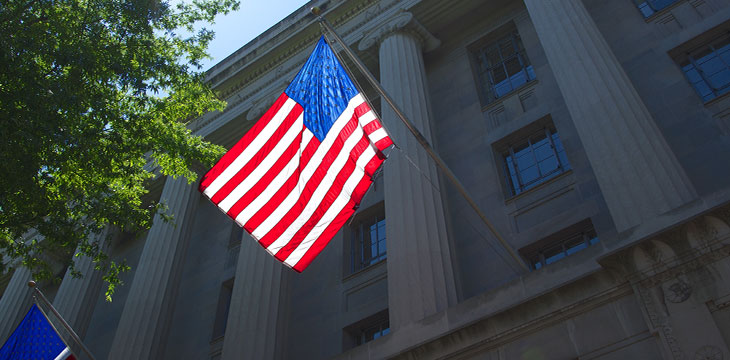|
Getting your Trinity Audio player ready...
|
As cryptocurrencies continue to gain favor among users, more governments around the world will undoubtedly look to providing some type of input on how the market evolves. The steps are just the first towards possible regulation, which shouldn’t be a shock to anyone. As they say, there’s no taxation without regulation. U.S. President Donald Trump has now put the onus on the Department of Justice (DoJ) to create policies designed to monitor and, in the future, possibly regulate what could very well become the currency of tomorrow.
Deputy Attorney General Rod Rosenstein presented information on the program earlier this week at a meeting of the Financial Service Roundtable. He stated that the government is currently involved in the creation of a “comprehensive strategy” to deal with digital currency. He indicated that the DoJ will spearhead the program, which will initially be directed at training federal officials on the fundamentals of cryptocurrencies and how they work.
The U.S. isn’t the first to look at providing some guidance on cryptocurrencies. Japan, South Korea, Israel and Germany, as well as others, have already begun to explore their own roles in a global cryptocurrency world, but any plan will face many obstacles. Cryptocurrencies are highly unique instruments that don’t adhere to traditional financial system procedures. This disconnect requires a great deal of training and understanding prior to being able to implement any wide-reaching policy.
It’s important to point out that the implementation of strategies to provide oversight don’t equate to the creation of market regulation. The oversight is geared to protecting users and suppressing any malicious activity, such as money laundering and fraud, which could be detrimental to the digital coin’s development. They’re designed so that governments can better understand and manage cryptocurrencies in an effort to lay the groundwork for acceptable-use policies.
This could, however, also potentially pave the way for regulation in the future. With that said, there is still no clarity on whether or not the strategy will definitely lead to market regulations. Earlier this month, a White House official stated that Trump’s administration is not currently looking to adopt a comprehensive regulation plan regarding cryptocurrencies.

 02-18-2026
02-18-2026 




